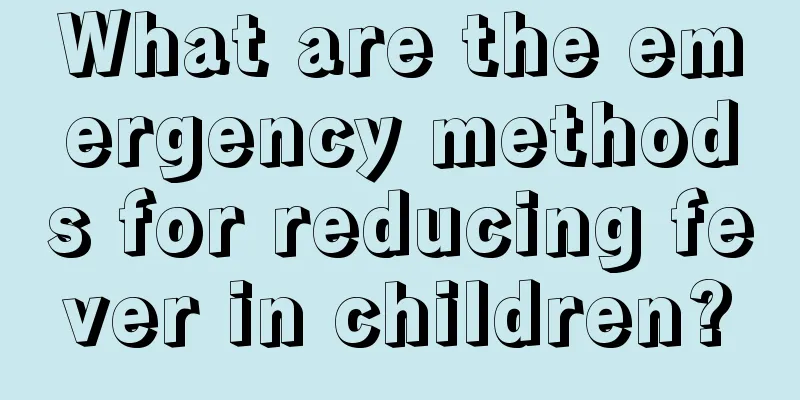Symptoms of red tongue in baby

|
Some babies have red tongues, which makes many parents particularly worried. They are worried that there is something wrong with their children's health and that the red tongue will affect their children's eating. Therefore, they want to fully understand the symptoms of red tongue in babies. The following content provides a detailed introduction so that you can have a comprehensive understanding. Pale tongue: generally due to deficiency of Qi and blood or cold constitution, often seen after a serious illness or in people with congenital deficiency; Red tongue: mostly fever. When the disease first occurs, the red edges of the tongue indicate that the heat is on the surface, such as colds and measles; the whole tongue is deep red, which means the heat has entered the interior and the condition is more serious. Red tip of tongue: indicates excessive internal heat, often accompanied by symptoms such as irritability and insomnia; Red tongue edges: Indicating excessive liver and gallbladder fire, which makes one more irritable and angry; Red tongue: It means that the stomach fire is too strong, often with symptoms such as heartburn and acid reflux. If the tongue is thin at the same time, it is mostly a manifestation of yin deficiency and internal heat, which can be seen in patients with chronic gastritis, gastric ulcer, tuberculosis, etc. Purple tongue: If the entire tongue is evenly blue, it is a cold symptom, which is often seen when there is severe chest and abdominal pain, such as biliary tract parasites, angina pectoris, and intestinal obstruction; if the tongue is purple, it is often seen in patients with fatty liver, cirrhosis, and tumors. However, people who are heavy smokers and drinkers may also have purple tongue; Partial peeling of the tongue coating: indicates damage to the stomach qi or stomach yin, and can also be seen in vitamin deficiency. If the tongue coating suddenly disappears and becomes as smooth as a mirror, it is a serious phenomenon of damage to both stomach yin and stomach qi. A dry tongue coating indicates that the body's body fluids are damaged, which can be seen in diabetes; while a slippery tongue coating indicates that the body's body fluids are accumulated, which is common in kidney disease. Greasy tongue coating: usually indicates phlegm dampness, which should be taken seriously; if the coating is loose, with large particles, thick on the sides and middle of the tongue, and looks like tofu dregs, it is called rotten coating, which is a manifestation of food accumulation in the stomach and intestines. If your baby's tongue turns red, parents must pay attention to it, because long-term presence will seriously affect the child's health. So after fully understanding the above symptoms, in order to make your child recover as soon as possible, you must go to a regular hospital for a comprehensive examination. After a confirmed diagnosis, correct treatment must be carried out to make your baby recover as soon as possible. |
<<: What is the cause of thick tongue coating in infants and young children?
>>: Treatment for baby's fever and swollen gums
Recommend
What should I do if my child has congenital finger deformities?
Fingers are an essential part of the human body t...
What to do if baby has ringworm on legs
Children's skin is very tender, but you may o...
What to do if children have allergic itching? Common treatment methods
If a child has allergies, the mother should be ca...
The red spots on the child's feet are very itchy_the baby's feet have small red spots_the child's feet have red spots
Many children have red spots on their feet, which...
What is the reason for a child's long-term hoarseness?
The problem of hoarseness in children is a big pr...
Newborn baby wakes up crying
In daily life, many parents may have experienced ...
How to supplement zinc for babies
For children, it is important to emphasize nutrit...
At what months can babies turn sideways?
As the baby grows up day by day, his every move w...
What should I do if my child has red bloodshot eyes?
Children's eyes are a part of their body that...
Can children eat mangoes when they have a cough? What effect will it have?
Normally, the nutrients in mangoes can be consume...
What is the standard height and weight for a 21-month-old baby?
From the birth of their children, parents have be...
How to clean your baby's mouth
Babies do not have teeth when they are born, so y...
Goose bumps on the child
Children may have symptoms similar to goose bumps...
What's wrong with the child's red butt?
We all know that children's skin is very deli...
What to do if your baby doesn't sleep well?
Every child has some small problems during infanc...









